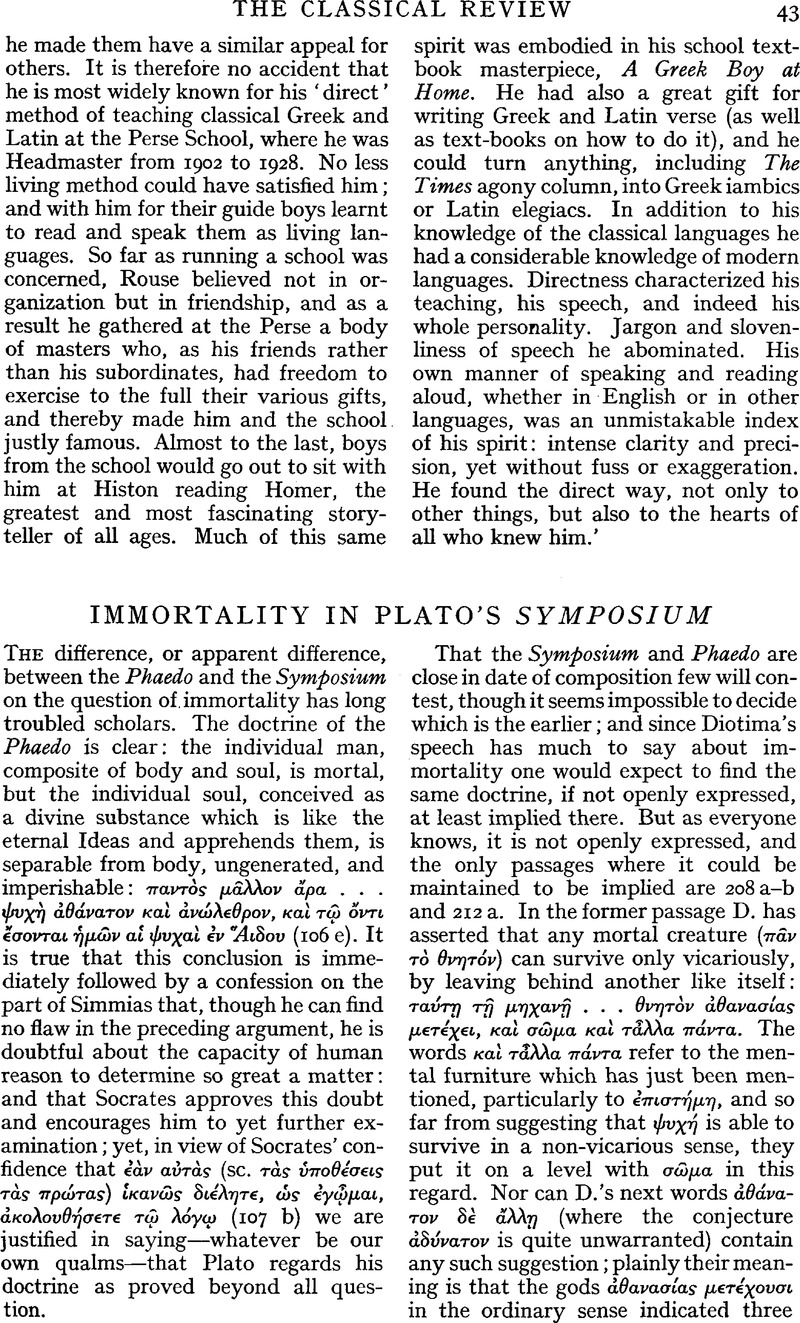Published online by Cambridge University Press: 27 October 2009

page 44 note 1 Cf. G. M. A. Grabe, Plato's Thought, p. 149: ‘To make the passage at all compatible with the Phaedo we must include the intellect under the ⋯θ⋯νατον which is immortal ἄλλ⋯. But certainly no one who had not the other dialogues before him would take this to refer to anything but the gods.’
page 44 note 2 The language of 212 a is ambiguous between τ⋯κος ⋯ν αὑτ⋯ and τ⋯κος ⋯ν ⋯λλ⋯, perhaps designedly, for the one must precede the other. But in view of the whole tenor of the speech, and particularly of 209 c and 210 c, it is doubtless τ⋯κος ⋯ν ⋯λλ⋯ that P. has predominantly in mind. It may be noted incidentally that εἴδωλα ⋯ρετ⋯ς implies a reference back to 209 c, where D. describes what Jaeger (Paideia, i. 193 ff.) has called ‘aristocratic culture’ particularly as seen in the poems of Theognis. (I owe this point to Mr. F. H. Sandbach.)
page 44 note 3 Gaye, The Platonic Conception of Immortality, p. 28. 4 Shorey, What Plato Said, p. 196.
page 44 note 4 Gomperz, T., Greek Thinkers, 2. 392.Google Scholar
page 44 note 5 Plato, the Man and his Work, p. 228, note 1.
page 45 note 1 My best thanks are due to Mr. W. K. C. Guthrie and Mr. W. Hamilton for reading the draft of this paper and for valuable criticism.